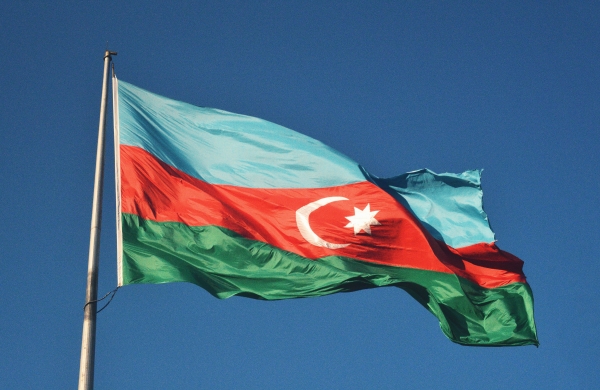This report written by the International Crisis Group outlines the recent developments in the Nagorno-Karabakh war, the political consequences of the ceasefire signed on the 9th of November 2020, and the brutal impact of the war on the inhabitants of the region. Internationational Crisis Group (ICG) is a no-profit non-governmental organization devoted to conflict prevention and conflict resolution. The ICG operates by gathering data on the field and proposing possible policies to mitigate or end conflicts.
Nagorno Karabakh is a region in the South Caucasus populated by an ethnic Armenian majority and formerly belonging to the Soviet Republic of Azerbaijan. With the fall of the Soviet Union, Nagorno- Karabakh declared its independence, hoping to rejoin Armenia, triggering a conflict in 1992 between Armenia and Azerbaijan on the status of the region ,recognized as Azerbaijani territory under international law. In 1994, a ceasefire ascertained Armenian control over seven regions around Nagorno-Karabakh, creating a buffer zone between the latter and Azerbaijan, and establishing a de facto government and army in the region. The ceasefire did not put an end to the violence as clashes between the two states continued for 26 years, escalating on the 27th of September 2020 into a full-fledged conflict. After six-weeks of fighting of the Armenian and the de facto forces of Nagorno-Karabakh against the Azerbaijani forces backed by Turkey, a Russian-brokered ceasefire was approved, cementing Azerbaijan’s military gains.
Five thousand militaries and hundreds of civilians have lost their life in the six-week conflict, while tens of thousands have been displaced. The ceasefire envisages an exchange of war prisoners, including those captured during the previous 26 years. Nonetheless, the ICG reported that prisoners of war were subjected to brutal violence on both sides. Especially in Armenia, there have been numerous reports of mistreatment of prisoners some of whom have been victims of beheadings. Armenia reported that hundreds of soldiers and civilians are still missing, while Azerbaijan reported 100 soldiers missing and the mistreating of two prisoners of war. For this reason, Armenia and Azerbaijan appealed to the European Court of Human Rights, each accusing the other of human rights violations. Meanwhile, the Russian authorities have deployed civilian personnel to provide humanitarian aid to the population together with the Turkish Red Crescent.
An issue of particular concern is the return of refugees. The conflict has pushed the ethnic Armenian inhabitants of Nagorno-Karabakh to seek refuge in Armenia. As reported by the ICG, Russian authorities have provided transport services from Armenia to Stepanakert, the capital of Nagorno Karabakh, to help around 100.000 refugees return to their homes. However, at the same time, Azerbaijani authorities have estimated that about one million Azerbaijani who fled Nagorno-Karabakh in the 1992 war wants to return to their long-lost homes, something which the Azerbaijani government has supported by promising to fund the reconstruction of the returnees’ properties. Meanwhile, the war has destroyed countless houses in the area and has displaced 17.000 ethnic Armenians living in the adjacent territories now under Azerbaijan’s control, without possibility to return. Azerbaijani authorities have estimated that the reconstruction will require around $100 billion which the government demands from Armenia as compensation for the war.
The ceasefire signed on the 9th of November overturned the 1994 status quo, ascertaining the victory of Azerbaijan over the previously Armenian-controlled regions around Nagorno-Karabakh and on some territories of the region itself. Russian peacekeepers have been deployed in those areas not controlled by Azerbaijan, which are still currently occupied by the de facto forces of Nagorno- Karabakh. The ceasefire has redrawn the political equilibria in the South Caucasus, but it has not clarified the future of Nagorno-Karabakh, nor the role of the Russian peacekeepers, as the current situation does not allow for a definite solution. Indeed, while during the pre-war negotiations Azerbaijan had declared itself keen to grant partial autonomy to the region, now that it has conquered part of its territory, the country is no longer inclined to grant autonomy, limiting the concessions to freedom in cultural affairs such as language and education.
Nevertheless, the ceasefire envisages a deeper economic integration between the two rivals, hoping that cooperation in the economic sphere will then spill over in the political one. Meanwhile, Russia and Turkey will monitor the implementation of the ceasefire in a monitoring center in Agdam, one of the adjacent territories conquered by Azerbaijan. The Russian and Turkish leading role raises concerns among the other members of the Organization for Security and Co-operation in Europe (OSCE) Minsk Group, the multilateral framework to negotiate peace in Nagorno-Karabakh, which felt left out because of Russia’s leading role in the negotiations. However, the Federation has not opposed the intervention by other parties and has instead called for their participation in the funding of the reconstruction. In conclusion, the International Crisis Group suggests a wider cooperation among Russia, Turkey, and the Western powers to reach a viable and permanent solution to the issue of Nagorno-Karabakh.
To know more, please read:
https://www.bbc.com/news/world-europe-54366616
https://www.bbc.com/news/world-europe-54882564
Author: Carla Leonetti; Editor: Francesca Mencuccini




